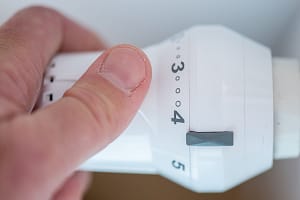London-based accountancy firm Grunberg & Co says struggling taxpayers may well be able to mitigate the damage caused by lockdown by filling early tax returns.
Self-Assessment taxpayers, whose incomes fell in the 2020-21 tax year, may be able to reduce their next tax payment to HM Revenue & Customs (HMRC) on 31 July 2021, but need to act now by getting the information to their accountant.
A lot of taxpayers had a very different tax year in 2020-21 and may be due a refund or an adjustment to the second payment on account due on 31 July 2021.
Payments on account are determined by estimates based on past income, so providing updated figures from a bad year now could reduce the bill or even lead to a refund.
So far, taxpayers have been getting organised with 950,000 already having completed their 2020/21 tax returns with 63,500 filing their self-assessment on the first day of the tax year, HMRC has revealed.
And with almost 950,000 online Self-Assessment returns received so far this tax year, HMRC is urging others to do the same and file their tax returns early.
Peter McMahon, Tax Partner at Grunberg & Co, said: “It is not uncommon for many taxpayers to file their return at the last minute in January, but this year there are obvious benefits to getting tax information submitted early to HMRC, as it will provide the tax authority with a clearer view of current income so that upcoming tax payments are more accurate, which in some cases could lead to a reduction in the amount paid.”
HMRC has published information on how to file self-assessment tax returns to help taxpayers file early – how to do it, what the benefits are, and what they need to get started.
‘Payments on account’ are advance payments towards your tax bill (including Class 4 National Insurance if you are self-employed).
You must make two payments on account every year unless:
- your last Self-Assessment tax bill was less than £1,000
- you’ve already paid more than 80 per cent of all the tax you owe, for example through your tax code or because your bank has already deducted interest on your savings
Each payment is half your previous year’s tax bill. Payments are usually due by midnight on 31 January and 31 July.
If you still have tax to pay after you have made your payments on account, you must make a ‘balancing payment’ by midnight on 31 January next year.
Peter added: “Payments on account do not include anything you owe for capital gains or student loans (if you are self-employed) – you’ll pay those in your ‘balancing payment’.
“For many, however, the past year has perhaps been the worst ever for them, so mitigating payments will ease the financial pressure.
Going forward it is likely that many taxpayers will also see a drop in profitability in the 2020-21 tax year. “
Grunberg & Co is encouraging taxpayers to seek help from an accountant to find out how they can reduce payments in July.
“In practice, many people choose to do this if they are having trouble paying their tax bill. Some reduce their payment on account, presuming they will be in better financial shape later and that they will find it easier to settle the remainder of their bill,” said Peter.





Leave a Comment